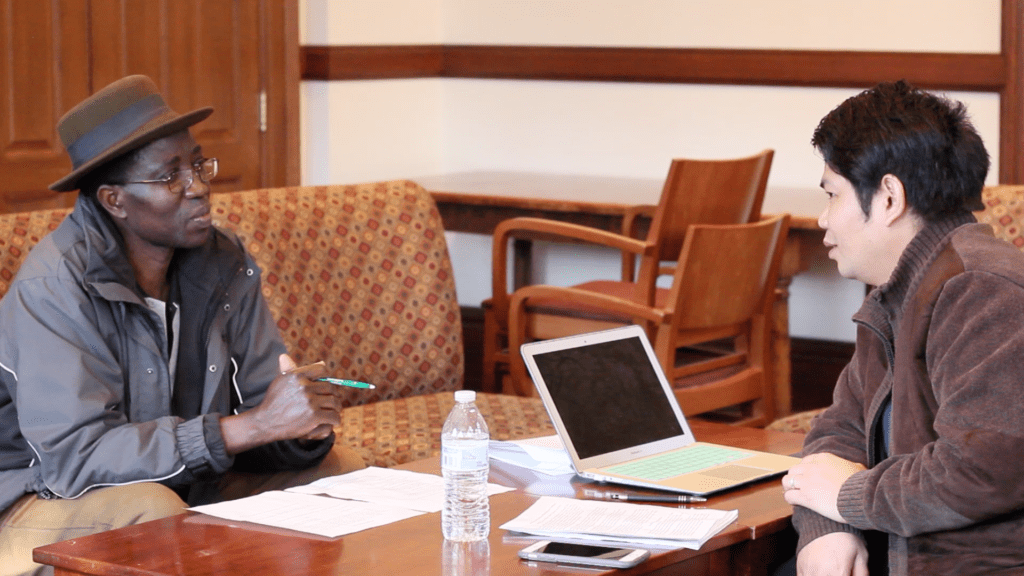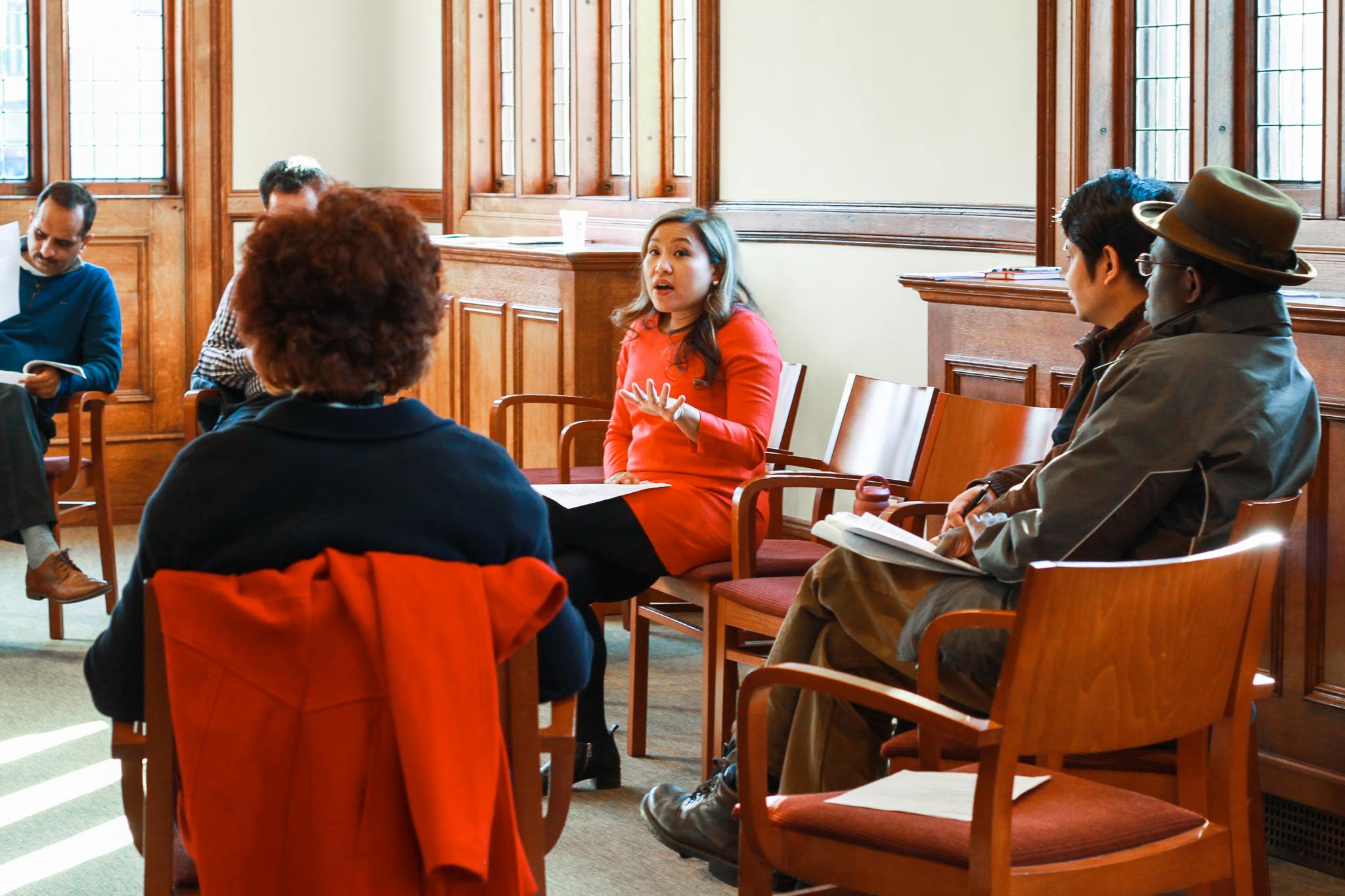By Katherine Clifton
For the “Refugee Oral History Convention,” the Office of Religious Life welcomed 13 refugees to Murray Dodge Hall to develop and practice oral history skills on December 7, 2019. These 13 individuals were born in ten different countries, speak eleven native languages, represent a variety of religious identities, have lived in the US between two to 40 years, and now live in New Jersey. Assembling this diverse group to share their resettling experiences offered a unique opportunity to amplify refugees’ voices and, through their words, understand their multifaceted and evolving religious identities as they build new lives in the US.
The gathering formed part of the Being Human Festival 2019. Melissa Borja, an expert in conducting oral histories about religion with refugees, co-facilitated alongside Matthew Weiner, ORL Associate Dean, and Katherine Clifton ’15, ORL Coordinator of the Religion and Forced Migration Initiative.
In 2017, ORL launched the Religion and Forced Migration Initiative to offer programs that enriched our understanding of the role religion plays in the lives of refugees. In 2018, ORL received a grant from the Luce Foundation to hone in on the intersection of religion and refugee resettlement structurally, socially, and spiritually. A major component of the project involves developing an archive of oral histories from resettled refugees in the United States whose religious and spiritual lives have been consequential in their journey and resettlement. Around 20 undergraduates conducted oral histories with refugees in 2019, and thanks to this convention, more refugees will be involved as interviewers as well as narrators.
Borja, assisted by Clifton, led the group in an interactive 2.5-hour training, which covered oral history methodology, benefits, ethics, and preparation. Providing examples of relevant oral history archives and examples from their own oral history interviews with refugees, they brainstormed ways that the participants could situate the training in their lives by interviewing members of their families and communities. After lunch with a selection of the ORL’s Princeton University student oral historians, catered by the refugee restaurant Global Grace Café, the participants put their training into practice by conducting 45-minute oral history interviews in pairs.

As the participants reflected on the experience interviewing and being interviewed, they most appreciated the chance to find common ground and solidarity with people who came from different places at different times but experienced many of the same difficulties and triumphs. One participant from Afghanistan said, “For us we come here as a refugee, so we pass through a lot of difficulties to come here, so definitely we came when we had a lot of stress. When someone tells you have what he has been passing through, you can understand what you passed through better. When I compare the time we spent in that situation, you can have more encouragement.” Another from Vietnam added, “Surprisingly, we face the same problems during resettlement. We shared the same suffering.” Her partner from Pakistan responded, “The beginning of a long-term friendship.”
Several of them were surprised by how close they felt to their partners having only known them for a day. One participant from Cambodia shared, “I thought the oral history project was far more intimate than I had anticipated. There’s a difference between someone saying I had escaped war or I had fled a dire circumstance, but to go into detail about names, locations and neighborhoods is a bit more revealing and more potent than I could have thought.” His partner from the Former Yugoslavia responded, “The more we talked, the more I became comfortable with the process, and it seemed that at the end we didn’t want to stop. We wanted to continue with the questions to the point that we exchanged our phone numbers and said, ‘Let’s have a follow-up meeting over a cup of tea.’”
On the topic of religion, the refugees were curious to learn about their partners’ religious beliefs and how religious institutions shaped their experiences. One participant from Uganda said, “Religion shows up in a variety of ways: why we left the country, a source of strength, why we stayed involved in helping new refugees arrive.” His partner from Myanmar agreed: “There’s a broad approach with how it’s functioning, how it looks, but for us it was about community.” Another from Afghanistan added, “Sometimes these issues are difficult to discuss because we don’t often take a step back and examine how religion changes. It wasn’t the first concern, but I know it is important to me. I just don’t think about why. This was an important conversation for me to think about why.” Several participants expressed that they would like to keep reflecting on how their religious identities and communities have affected their sense of belonging in the US.
Owing to this successful pilot training, Clifton will likely lead additional trainings for refugees and American-born children of refugees at some of ORL’s Faith-Based Internship placements this summer.
















